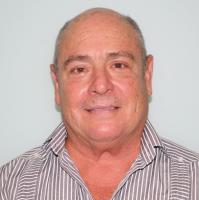Research Interests:
Environmental Anthropology, Political Ecology, Indigenous Studies, Latin American StudiesBio:
Born and lived in Puerto Rico until the end of High School. Graduated from Mercer University with a B.S. degree in Physics in 1985. Received a Master of Business Administration from the University of Connecticut in 1990 and worked in corporate finance and treasury at Otis Elevator eventually administering Otis Latin American agents in over 10 countries. Started a career in tourism with United Airlines with the Latin American and Caribbean team in Miami after which founded a consulting business focusing on ecotourism that spanned over 20 years.
In 2023, obtained a Master of Arts degree from FIU’s Latin American and Caribbean Studies Center program which included fieldwork in a community in the buffer zone of a recently established Protected Area about 50 miles south of Iquitos, where two of the most important Amazon Basin tributaries, the Ucayali and Marañon Rivers confluence to form the mighty Amazon River. Using ethnographic methods at the village of El Chino, documented the history of the community from the time of its inception in the mid-1970s until the present with a focus on habits and practices of environmental protection and preservation of ecosystems. In August of 2023, I joined the FIU, GSS Doctorate program in the Cultural Anthropology tract where I intend to continue my research in the Peruvian Amazon.
